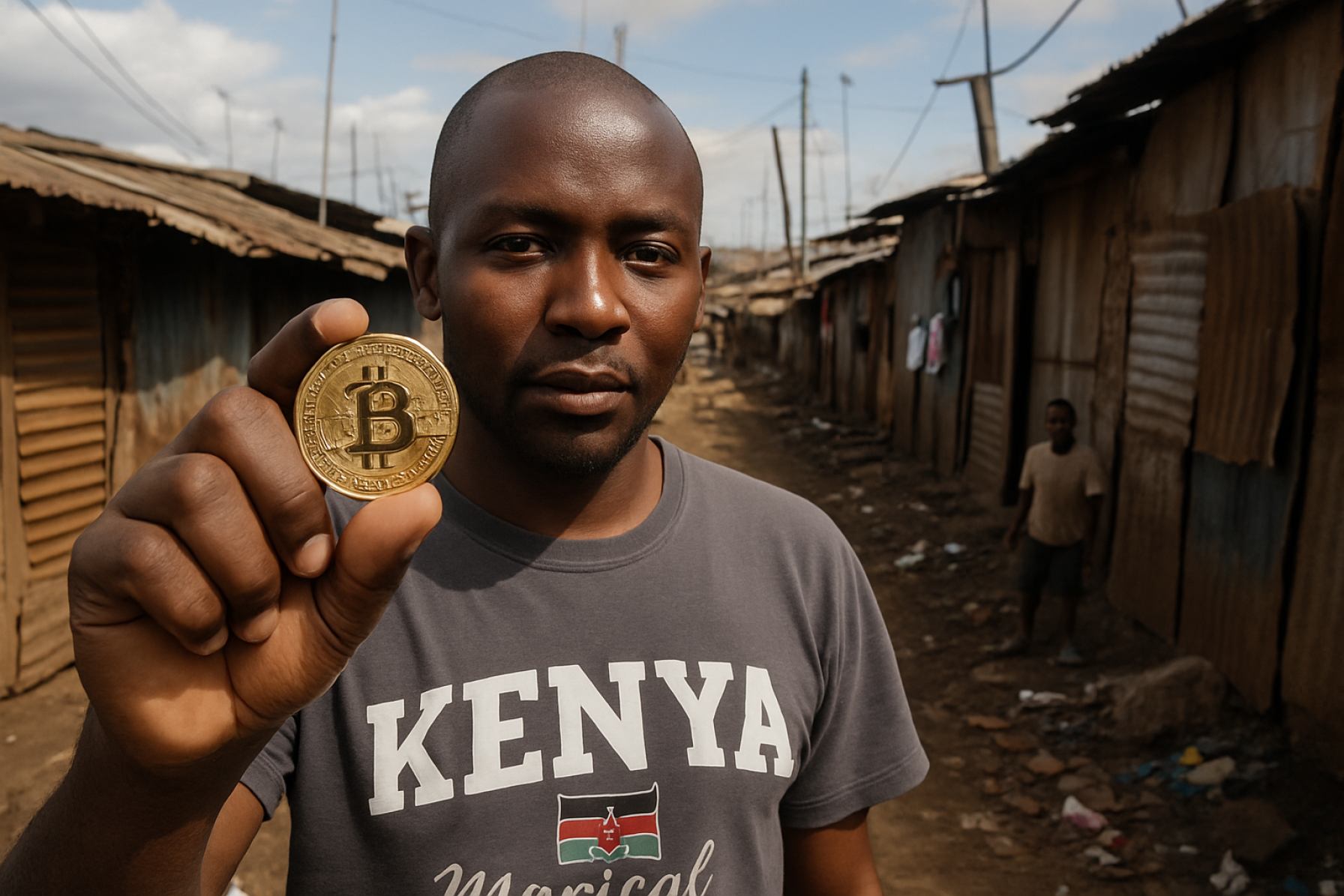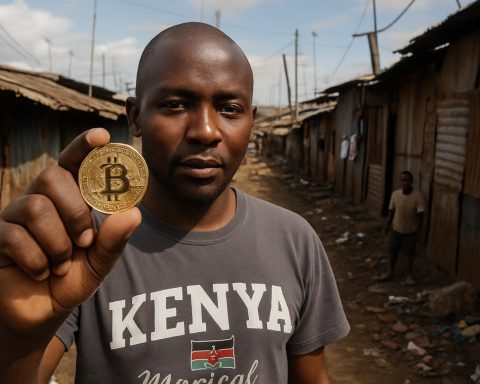Inside The Surprising Bitcoin Revolution Unfolding in Nairobi’s Kibera Slum
Discover how bitcoin is reshaping commerce in East Africa’s largest slum, empowering residents—and raising urgent questions about risk.
- Over 200 residents now use bitcoin in Soweto West, Kibera
- $10,000+ worth of bitcoin injected by AfriBit Africa since 2022
- Some vendors report 10% of transactions now in bitcoin
- Average user holds up to 80% of net worth in crypto
Kibera, a sprawling slum in Kenya’s capital Nairobi, is famous for its resilient entrepreneurs and bustling markets. But beneath the typical hum of roadside vegetable stalls, a quiet digital revolution is unfolding.
Dozens of young garbage collectors are now paid in bitcoin following an initiative by fintech startup AfriBit Africa. The result? Bitcoin is spreading throughout Soweto West, turning one of Africa’s most underbanked communities into a real-time experiment in digital finance.
As bitcoin payments ripple through small shops and veggie stands, the future of financial inclusion in Kenya is facing bold new questions—and real risks.
Q: Why Is Bitcoin Catching On in Kibera?
Traditional banking is out of reach for many Kibera residents. Requirements for documentation and minimum balances often act as steep barriers. With bitcoin, access is as simple as a smartphone and a digital wallet. There’s no paperwork, bank queue, or gatekeepers.
AfriBit Africa jumpstarted the local crypto economy by awarding bitcoin grants to neighborhood garbage collectors—dynamic, tech-curious youth who quickly embraced the new system. Their earnings soon flowed into small businesses, with vegetable vendor Dotea Anyim noting around 10% of her sales come in bitcoin. She values the speed and the absence of transaction fees, outpacing even Kenya’s omnipresent M-PESA mobile money.
Q: How Are Locals Using and Spreading Bitcoin?
Nearly every Sunday, garbage collectors meet, fill bags with waste—and receive bitcoin directly to their phones. AfriBit Africa estimates over $10,000 worth of bitcoin has entered Soweto West since 2022.
Some, like 23-year-old Damiano Magak, go even further, preferring to store nearly 80% of their wealth in bitcoin. Meanwhile, shops and stalls are adapting, offering customers the choice to pay in crypto for fresh produce.
What Are the Benefits for the Community?
– Cheaper transactions: Merchants avoid costly mobile money fees, keeping more earnings.
– Instant payments: Sales and wages land in seconds, even with shaky internet.
– Financial access: Residents can save or transfer funds without any formal bank account.
Advocates believe bitcoin’s decentralized nature perfectly fits the needs of people often excluded from traditional finance. For more on cryptocurrency’s global footprint, check insights from CoinDesk and Binance.
Is Storing Wealth in Bitcoin Safe?
Here’s the flip side. Some experts warn that high exposure to cryptocurrency is risky, especially for low-income communities. Bitcoin is famously volatile—its value can swing wildly in days, putting hard-earned savings at jeopardy.
With Kibera users often keeping as much as 80% of their net worth in crypto, voices like Ali Hussein Kassim, chair of the FinTech Alliance in Kenya, caution that overexposure could leave vulnerable families at the mercy of unpredictable digital markets.
How Can More Kenyans Harness Bitcoin Safely?
To thrive, community members need education on risks, not just access to digital wallets. Here’s how locals (and anyone interested) can stay savvy:
– Diversify savings: Don’t put all your eggs in one (digital) basket.
– Lock in gains: Convert profits to local currency if bitcoin spikes.
– Stay informed: Follow trusted crypto news from Reuters and official financial sources.
– Learn security basics: Protect wallets and private keys to guard against hacks.
Kenya’s bitcoin boom is just beginning. Whether it liberates communities or exposes them to new hazards will depend on balance, education, and vigilance. Want to ride the wave? Start smart, stay safe, and keep learning!
Bitcoin Success in Nairobi: Your 2025 Action Checklist
- ✅ Research both the benefits and risks of cryptocurrency
- ✅ Start small and diversify your savings
- ✅ Use secure wallets and protect your passwords
- ✅ Follow major financial news outlets for crypto updates
- ✅ Teach friends and family about safe digital finance












